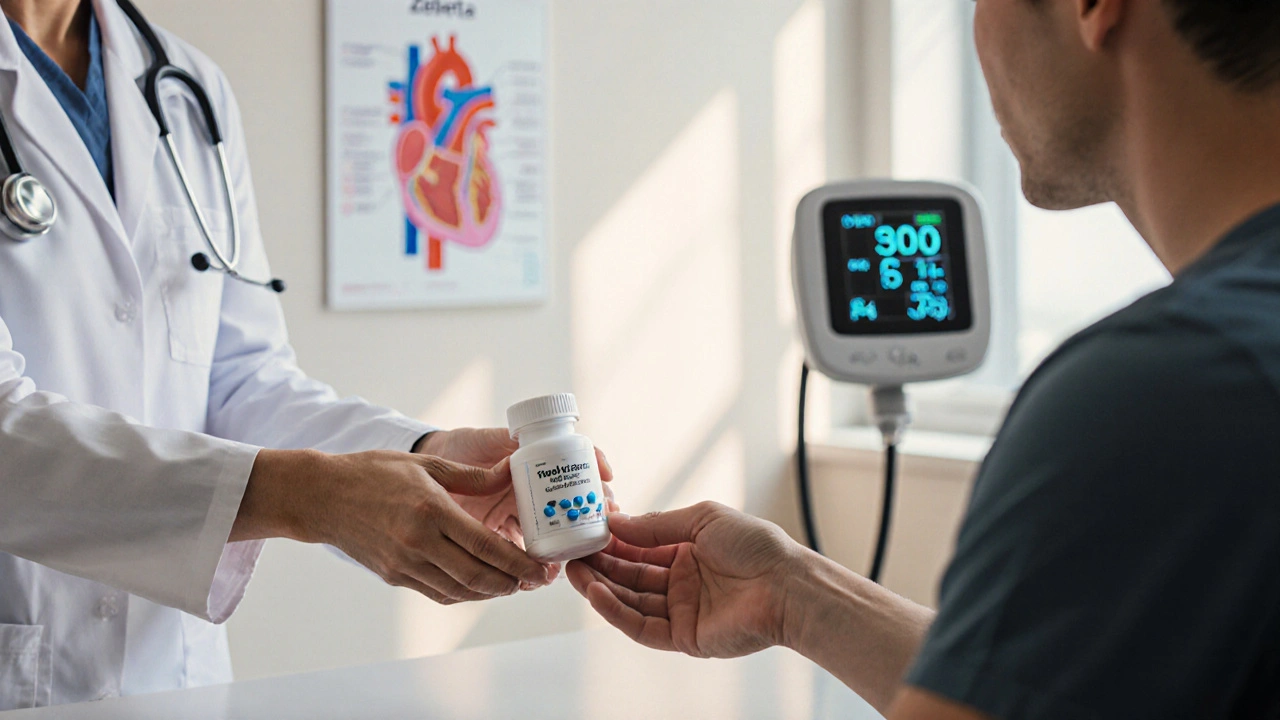High blood pressure is a silent risk that many of us face. The good news is that there are dozens of medicines that can bring those numbers down and protect your heart. In this guide we’ll break down the main drug families, show you what to expect from each, and give you simple tips for staying on track. Whether you’re starting treatment for the first time or looking to switch, the info below will help you make a confident choice.
ACE inhibitors (like lisinopril) relax blood vessels by stopping a hormone from tightening them. They’re usually easy on the stomach and work well for people with diabetes. ARBs (such as losartan) do the same job but are less likely to cause a dry cough.
Beta‑blockers (e.g., bisoprolol – marketed as Zebeta) slow down the heart, making it pump with less force. They’re a solid pick after a heart attack but might make you feel more tired.
Calcium channel blockers (like amlodipine) keep the muscles around arteries relaxed, which drops pressure. They’re popular for older adults and can also help with occasional chest pain.
Diuretics (such as torsemide) act like a mild water pill, letting your kidneys get rid of excess salt and fluid. They’re cheap and effective, though you may need to watch potassium levels.
Start by looking at your overall health. If you have kidney disease, ACE inhibitors or ARBs often get the nod. If you’ve had a heart attack, a beta‑blocker may be added to protect the heart. For people who struggle with swelling in the legs, a diuretic can be a game‑changer.
Cost matters, too. Many of the drugs above are available as generics, which can cut the price dramatically. Check reputable UK pharmacies for the best deals and make sure the pharmacy is licensed before you order online.
Side effects are the real deal‑breaker for many. A dry cough? Try switching from an ACE inhibitor to an ARB. Feeling dizzy after standing up? That could be a sign your dose is too high or you need a different class.
Finally, never stop a medication without talking to your doctor. Blood pressure can bounce back quickly, and an abrupt halt may cause a rebound spike that’s hard on the heart.
Keeping a simple log of your readings, how you feel, and any side effects will give your doctor the data they need to fine‑tune your regimen. Pair the meds with lifestyle changes – less salt, regular walks, and stress‑busting habits – and you’ll give yourself the best chance at a healthy heart.
In short, there isn’t a one‑size‑fits‑all pill for hypertension. Understanding the drug classes, weighing cost and side effects, and staying in touch with your healthcare team will help you find the right fit and keep your numbers in check.

A clear, conversational guide comparing Zebeta (bisoprolol) with other beta‑blockers, covering how they work, side‑effects, cost, and when to switch.
Read More >>
A clear, side‑by‑side look at Cardizem (diltiazem) and its main alternatives, covering uses, dosing, safety and how to pick the right option for you.
Read More >>